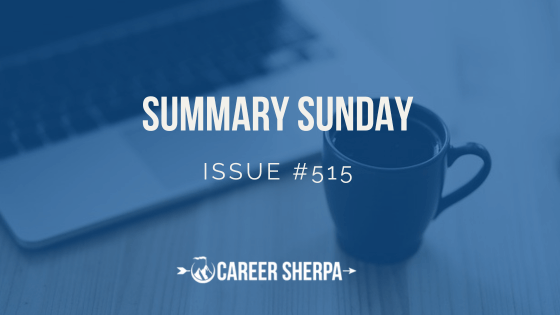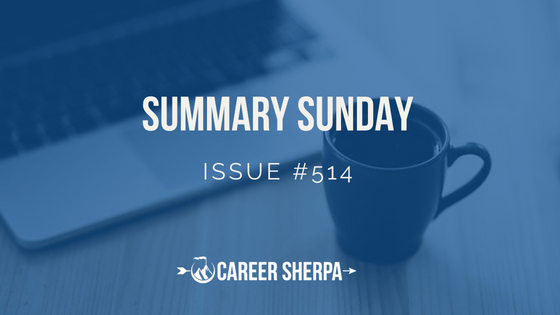
When it comes to professional development, there are many resources you can use to get to the next level in your career. Courses, online trainings, books, and podcasts are the most popular for their accessibility and effectiveness. Podcasts specifically are great resources for busy professionals looking to develop their careers because they are convenient and can be listened to on the go or while multitasking.
We recently asked our executives for their best podcast recommendations for professional development.
Here are their responses…
John Schembari, Senior Education Executive
âI am fortunate in that there are many quality niche podcasts in my field of teaching, leading, and learning. One of my favorites is Cult of Pedagogy because the topics are applicable across the scope of K16 education (i.e., strategies that can be quickly implemented the next day in most classrooms).
I think the bigger question, given how many quality podcasts there are across industries and because they tend to be ethereal, at least in my field, is “what TYPE of podcast do I prefer for professional development?”
I look for the following in a podcast for professional development:
- An easy takeaway – something that I can immediately use in my practice.
- Podcast guests/hosts with whom I can connect/are approachable.
- Podcasts that provide relevant resources for further information.
- Podcasts that mention other podcasts in the space – collaboration not competition.
- Podcasts that are focused on a specific theme per episode.
- Podcasts that are conversations, not monologues.
- Podcasts that might have me as a future guest.
âJohn Schembari is a current K-12 teacher/school leader academic improvement coach and former school building and district administrator. He loves to draw, travel, swing dance, and read nonfiction.
Percy Leon, Digital Media Content Executive

There are two podcasts that I listen to as a creator. The first is the Think Media Podcast, presented by company owners and digital marketing specialists Sean Cannell and Heather Torres. It is a fantastic resource for anybody looking to increase their online presence and business utilizing these strategies.
With an emphasis on YouTube marketing and other related topics including social networking, podcasting, and email marketing, this program gives insightful advice and suggestions for both beginning and seasoned artists.
For the most recent information about digital marketing, listeners may find it in the Think Media Podcast, which contains conversations with successful entrepreneurs and content creators.
The Creator Economics podcast is the second one that I regularly listen to. Reed Duchscher and Blake Robbins served as the hosts.
Reed is a businessman, the CEO of Night Media, a talent manager for well-known artists including Mr. Beast, Typical Ganer, and Preston, as well as a keynote speaker.
Blake is a VC at Ludlow Ventures. Blake Robbins is the person responsible for making 100 Thieves one of the biggest eSports brands ever created.
Creator Economics offers helpful advice and insights for creative professionals looking to build successful professions and enterprises.
Because of Reed’s experience as an entrepreneur, talent manager, and keynote speaker, the podcast addresses a variety of topics, including branding, marketing, pricing strategies, and building a community of fans and supporters.
The program has discussions with successful creative entrepreneurs and personal development.
Percy Leon is a digital media content producer specializing in educational technology and entertainment. He is interested in web3, metaverse, and the use of virtual reality for storytelling.
Michael Willis, Sports Business Operations Executive

Outside of the Executive Table Talk with Work It Daily, my favorite professional podcast is with Kelly Merbler. Her podcast is called Coffee with Kelly.
Coffee with Kelly meets every Friday from 8:00 a.m. to 9:00 a.m. Occasionally the meetings are on Fridays at 11:30 a.m. to accommodate some West Coast attendees.
Kelly Merbler started this podcast three years ago to respond to the nation closing due to COVID-19. The call began with five women looking to stay connected during this national shutdown.
The Friday calls have swelled to over 80 attendees. There are women and men from various walks of life. They are also reaching several countries.
Kelly also has a Slack channel to track podcast records, a job board, past and upcoming events, etc.
I canât exactly remember how I met Kellyâboth of our moms passed away from Alzheimerâs. At Christmas time, she goes to the nursing home where her mother stayed and visits with all the patients. These visits add smiles and laughter to many patients.
By trade, Kelly is a leader development consultant and a motivational speaker who can rally any crowd. The podcast topics range from guest motivational speakers who have started a business to job search ideas.
I love Kelly Merbler for her energy and love of people. Her heart is in a beautiful place. I am proud to be part of her tribe!
Michael Willis has 18+ years of experience working with accounting & sports organizations and has managed P&Ls of $10M – $125M+ with budgets of $3M-$50M+. He worked for the NFL for 22 1/2 years, mainly with the game officials working on the financial/accounting side of the business.
Georgia Musgrave, Vice President Strategic Initiatives

Are you wondering where all the talent has gone?
Are employees leaving your company?
Do your job openings attract interested and experienced candidates?
Listeners interested in recruiting, talent development, retention, leadership, and organizational culture should tune into Revolutionizing Recruitment: The Art of Attracting, Acquiring and Retaining Talent.
Recruiting talent is more than simply finding great employees. Join Kathleen Duffy, a revolutionary recruiting visionary and founder of Duffy Group, Inc. as she talks to the best in the industry. Past guests have included Chief People Officer at Intel Christy Pambianchi, the Global Head of Talent Acquisition at Spotify Jon Singel, SHRM CEO Johnny Taylor Jr., and New York Times best-selling author Marcus Buckingham.
If youâre searching for a strategic and collaborative approach to uncovering hidden talent, Revolutionizing Recruitment is the podcast for you.
Georgia Musgrave is the VP of Strategic Initiatives at Duffy Group. She educates leaders on the value of “passive talent” as a means of attracting the best human capital to their company.
Mark Taylor, Product & Operations Executive

Heroic with Brian Johnson.
That being said, the daily podcast, which consists of what Brian calls â+1s,â is the tip of the iceberg.
Many personal and professional development podcasts seem to consist of disparate âtechniquesâ that are shared with listeners as ways of solving life or business challenges on a tactical basis.
Brian is, in the truest sense of the word, a philosopher (i.e., one who both studies âphilosophyâ but also implements it on a minute-to-minute basis). As such, rather than simply throwing ideas out as daily â+1s,â heâs combined these and the other information he has distilled from a gamut of ancient and modern-day ways of thinking into an integrated philosophy of his own (see his website heroic.us).
As someone who seeks out practicality, âadultâ wisdom, and things that are âfit for purpose,â I find it to be an exceptionally useful source ofâdare I say itâenlightenment.
Mark Taylor has 20+ years of risk, technology, and product management experience working in global and regional financial services firms in the UK and the U.S. He’s managed teams of 40+, successfully addressed 100+ regulatory issues, and has saved companies $15M+.
What do you think are the best podcasts for professional development? Join the conversation inside Work It Daily’s Executive Program.

























